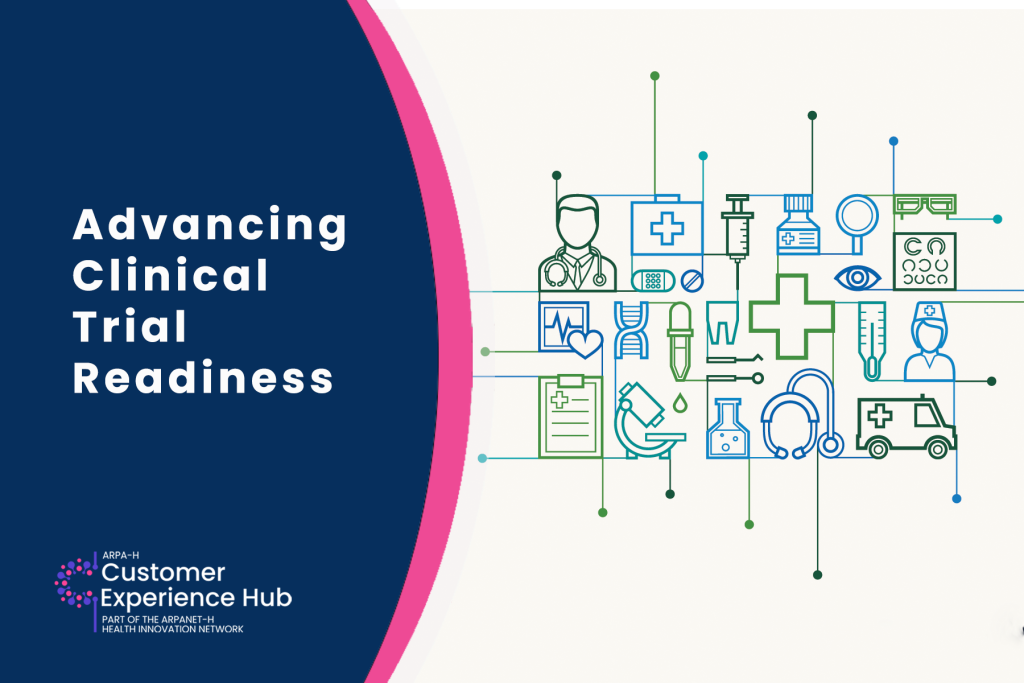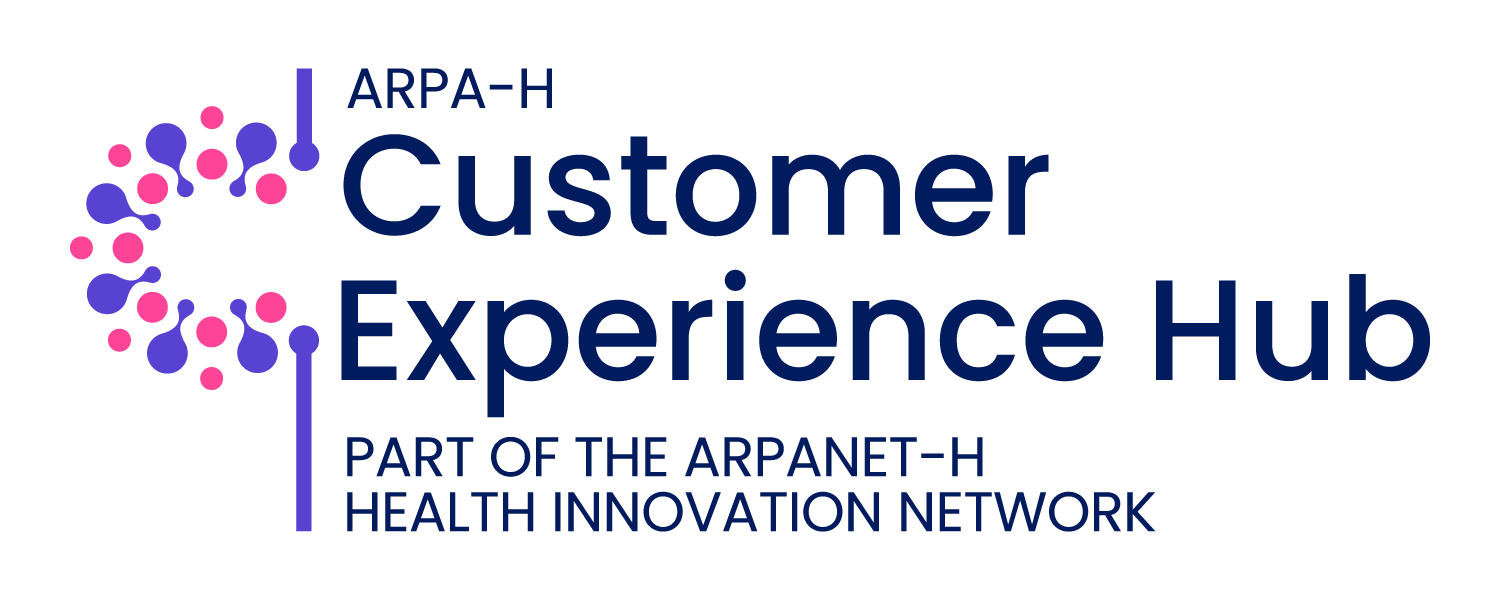
The Advancing Clinical Trial Readiness (ACTR) effort seeks to improve the nation’s ability to conduct clinical trials safely, quickly, and equitably. This is important to advance, integrate, and extend clinical trial capabilities that overcome challenges in evaluating new technologies, therapies, and platforms. A draft description of the effort can be found here.
The Customer Experience Hub and ARPA-H greatly appreciate the expertise and perspectives shared by all respondents. Our team and ARPA-H have closely reviewed the feedback, which is informing how ARPA-H will move forward with this initiative. The Public Summary of the responses with key themes and insights is available here. We anticipate sharing more information on future opportunities to engage with the effort soon.
Organizations or institutions interested in becoming a part of the Customer Experience Hub Spoke network can learn more at the How to Join webpage.
For more information, find answers to FAQs.
ARPA-H and the CX Hub hosted an information session to share more about ACTR, focus areas, and the Network Survey. The information session was held on November 21, 2:00-3:00PM CST and was recorded.
ACTR Network Survey Questions
- Organization Info (Name, Address, Organization Type, Phone Number, Email Address, POC Information )
- Are you already a Customer Experience Hub Spoke? Note that Spoke membership is NOT required to respond to this Network Activation call.
- Which aspects of the initiative description do you see as most vital to meeting the goals of a) enabling faster, less expensive, decentralized, and more representative trials and b) providing demonstrations that show the feasibility and utility of these new approaches?
- What, if any, components should be added to this initiative description to best enable achievement of the initiative goals? Please note any regulatory considerations.
- What existing capabilities, novel innovations, or actions are required for each task to accomplish its goal?
- (a) Task 1: Enrollment and Consent
- (b) Task 2: Decentralized Trials
- (c) Task 3: Trial Protocols and Data Collection
- (d) Task 4: Test and Evaluation
- (e) Task 5: Transition
- What, if any, risks/challenges exist in the current framing of the initiative that would prevent it from succeeding? How might these be mitigated?
- The Initiative Description Appendix A proposes a progression of notional metrics and milestones that could serve as goal posts to understand the bounds of what’s possible today. When framing metrics and milestones, we are interested in understanding what goal posts would fall into the following categories. What quantitative or qualitative goals would you see as falling within these three categories:
- (a) Reasonable Baseline Demonstrations
- (b) Ambitious, aggressive goals that just might be feasible in a one- or two-year time horizon
- (c) Goals that would truly revolutionize the clinical trial space
- If you are aware of similar efforts already conducted to achieve these goals or analogous efforts in other use-cases, please note these below along with salient lessons learned from those experiences (both positive and negative results).
- Describe which types of patient populations you can access, why, and how, with an emphasis on traditionally hard-to-reach groups.
- Describe practical and scientific expertise your team has with: patient navigation, patient counseling, or patient consent for clinical trials.
- Describe expertise with using and innovating on: electronic health records, clinical trial management systems, or medical data standards.
- Describe experience you have with trial design, including standard, emerging, and completely novel approaches and the highest potential approaches for decentralized and pragmatic trials.
- Describe financial, logistical, regulatory, partnership, consortium membership requirements or other constraints that might prevent you from participating in this effort.
- Please describe the catchment area that your organization covers (city, county, state, region, etc.)
